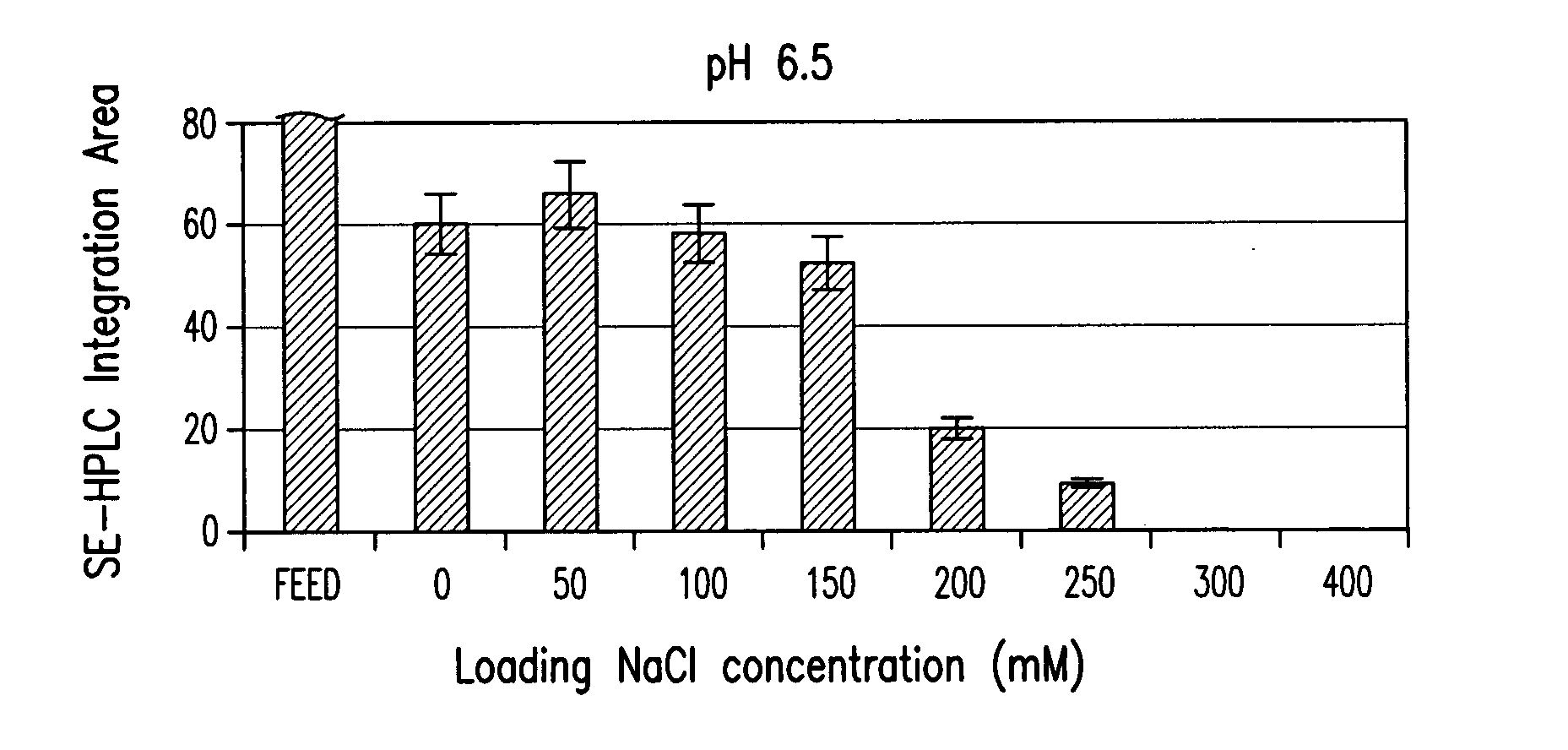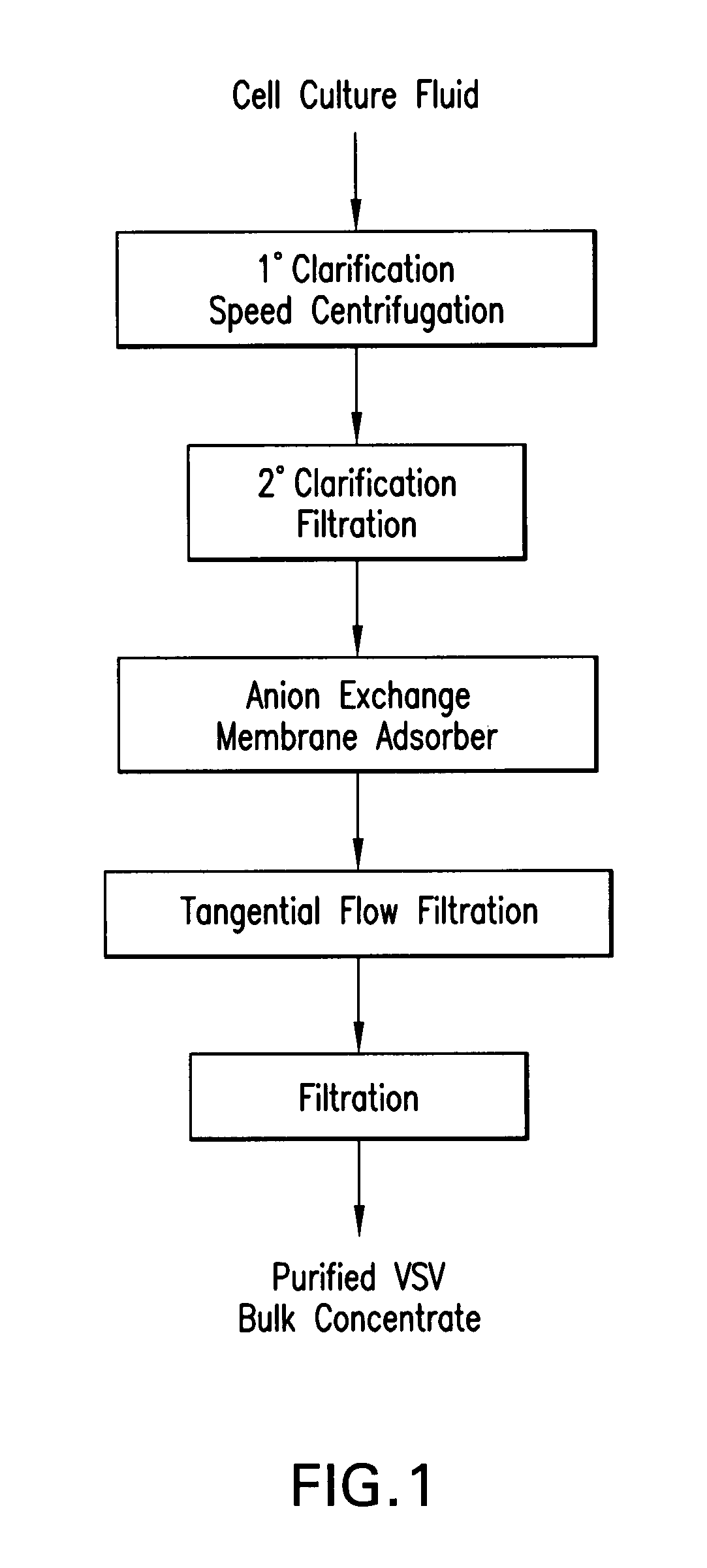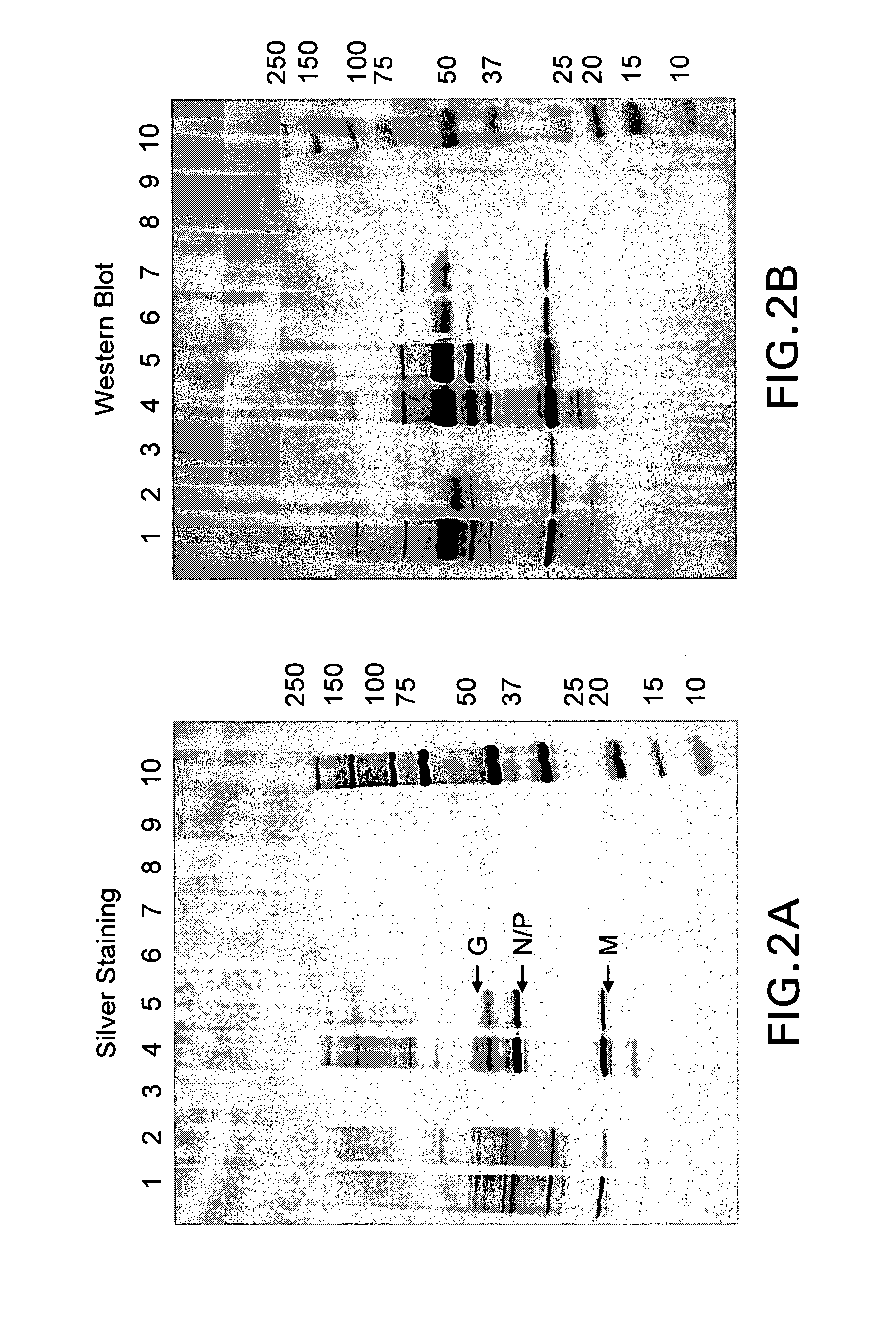Purification processes for isolating purified vesicular stomatitis virus from cell culture
- Summary
- Abstract
- Description
- Claims
- Application Information
AI Technical Summary
Benefits of technology
Problems solved by technology
Method used
Image
Examples
example 1
Protein, DNA and VSV Potency Assays
[0089]The following assays were utilized to assess the purification processes described hereinafter in Examples 2-12.
[0090]Total Protein Concentration. Total protein concentration was determined using the bicinchoninic acid (BCA) assay (Bio-Rad Laboratories Inc.; Hercules, Calif.) with bovine serum album (BSA) as a protein standard.
[0091]SDS-PAGE and Western Blot Analysis. For protein separation and detection, VSV samples were mixed with a Tri-glycine sample buffer at a 1:1 (for VSVIN N4CT9-gag1 construct) or 3:1 (for VSVIN N4CT1-gag1 construct) ratio, boiled for ten minutes at 100° C., and resolved by 4-20% Tris-glycine sodium dodecyl sulfate-polyacrylamide gel electrophoresis (SDS-PAGE), followed by double-staining with silver stain (Wako Chemicals USA, Inc.; Richmond, Va.) and colloidal Coomassie® Blue stain (Invitrogen Corp.; Carlsbad, Calif.). The sensitivity of the double staining made it possible to easily detect high molecular weight impuri...
example 2
Producing VSV In Vero Cell Culture
[0097]VSV experimental runs were produced in a 10-liter bioreactor, using Vero cell (African Monkey Kidney Cells) microcarrier cultures. The Vero cells used were obtained from a cGMP Master Cell Bank. Vero cells were grown on Cytodex™ I microcarriers (Amersham Biosciences Corp.; Piscataway, N.J.) at a density of 7.5 grams dry beads / liter. The working volume for the bioreactor culture was 5.5 to 6.5 liters. For inoculation, Vero cells were combined with Cytodex™ I microcarriers in a total volume of approximately 2 liters. The target seeding density of the culture was 5×105 cells / ml. A two-hour intermittent agitation cycle was performed at this reduced volume to promote cell attachment to the microcarriers. The culture was agitated for 5 minutes at 40 rpm, then allowed to settle for 20 minutes at zero rpm, for four complete cycles.
[0098]The culture was sampled following intermittent agitation, and if attachment was satisfactory, Virus Production Serum...
example 3
VSV Purification Process: Primary Clarification of VSV Cell Culture Fluid for VSVINN4CT9-gag1
[0100]After harvesting the cell culture from the bioreactor, cells / cell debris and other particulate impurities were removed in the process known as “product recovery”. Because VSV was secreted from the Vero cells into the culture fluid, the VSV was recovered in the clarified culture fluid. Thus, VSV cell culture fluid supernatant (e.g., about 4.0-4.5 L from a 10 L bioreactor run) was clarified by either depth filtration or low-speed centrifugation.
[0101]Clarification via depth filtration was performed at room temperature and the VSV was recovered in the filtrate. The following depth filtration modules were tested: a Whatman® Polycap™ HD module (Whatman Inc.; Florham Park, N.J.), a Sartorius Sartoclear™ P module (Sartorius Corp.; Edgewood, N.Y.), a Millipore® Millistak+® HC module (Millipore; Billerica, Mass.) and a CUNO 05 / 60HP (CUNO Inc, a 3M® company, Meriden, Conn.). The depth filters we...
PUM
| Property | Measurement | Unit |
|---|---|---|
| Temperature | aaaaa | aaaaa |
| Temperature | aaaaa | aaaaa |
| Length | aaaaa | aaaaa |
Abstract
Description
Claims
Application Information
 Login to View More
Login to View More - R&D
- Intellectual Property
- Life Sciences
- Materials
- Tech Scout
- Unparalleled Data Quality
- Higher Quality Content
- 60% Fewer Hallucinations
Browse by: Latest US Patents, China's latest patents, Technical Efficacy Thesaurus, Application Domain, Technology Topic, Popular Technical Reports.
© 2025 PatSnap. All rights reserved.Legal|Privacy policy|Modern Slavery Act Transparency Statement|Sitemap|About US| Contact US: help@patsnap.com



